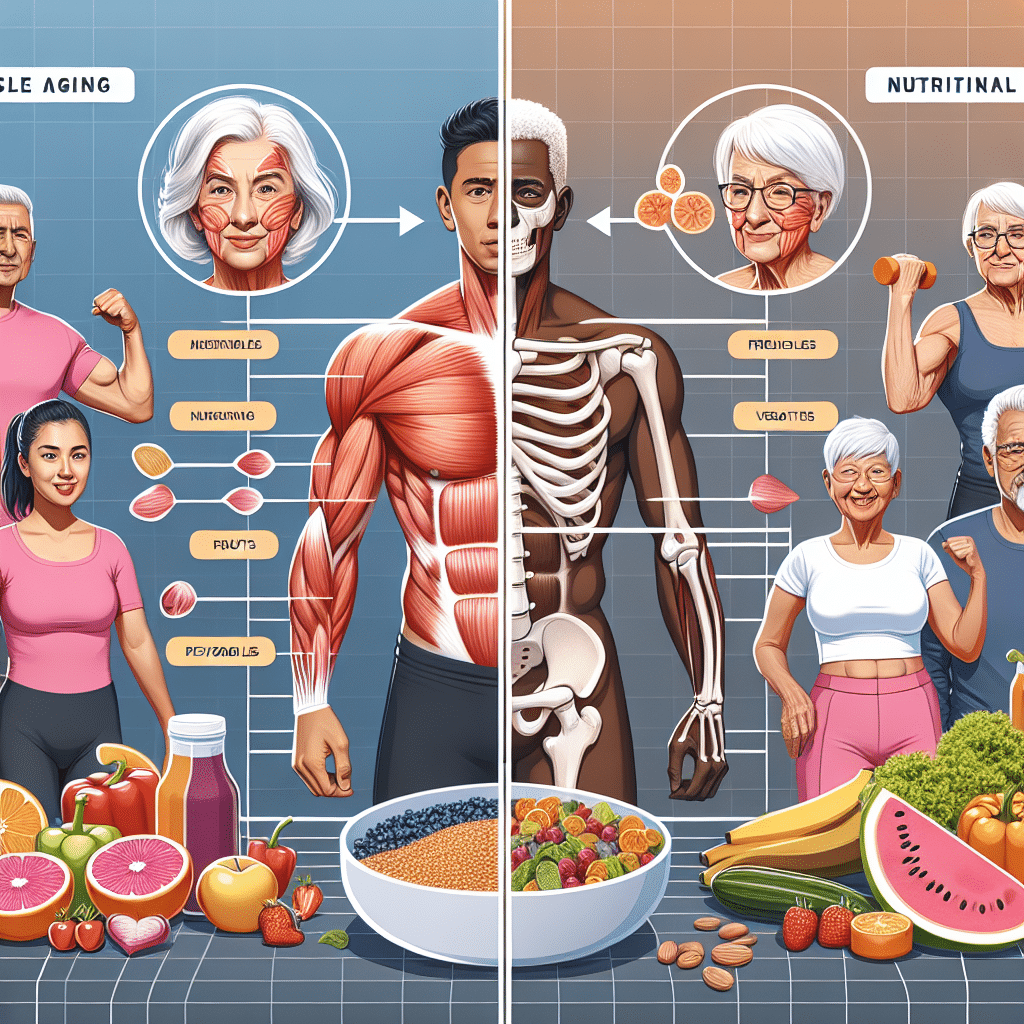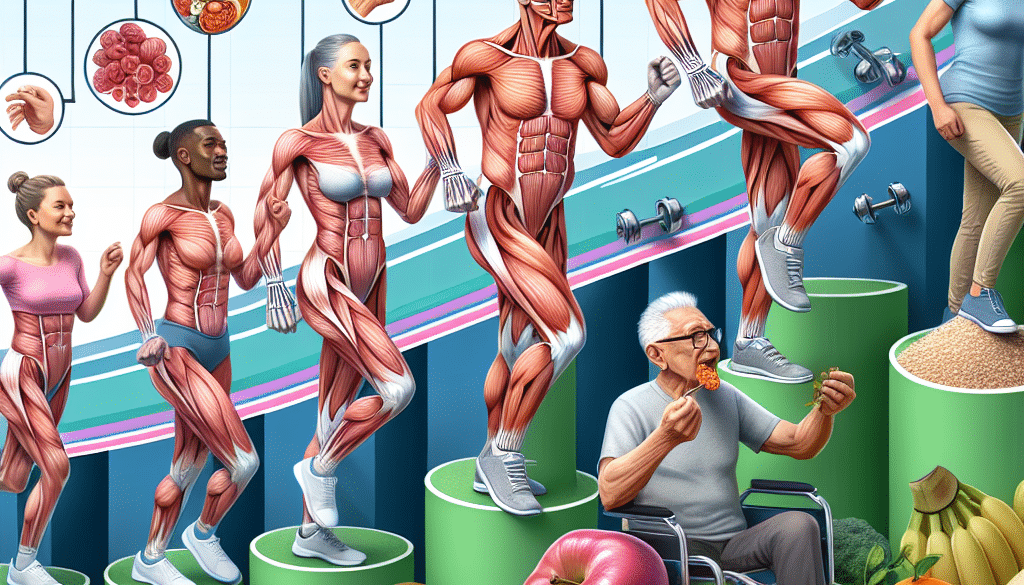Muscle Ageing: Nutritional Interventions for Adults
-
Table of Contents
- Muscle Ageing and Nutritional Interventions for Adults
- Understanding Muscle Ageing
- The Role of Nutrition in Muscle Health
- Protein: The Building Block of Muscles
- Vitamins and Minerals
- Antioxidants and Inflammation
- Practical Dietary Strategies for Muscle Preservation
- Meal Timing and Composition
- Hydration
- Supplementation
- Case Studies and Statistics
- Conclusion: Key Takeaways for Muscle Ageing and Nutrition
- ETChem’s Protein Products: Supporting Muscle Health
Muscle Ageing and Nutritional Interventions for Adults

As the global population ages, maintaining muscle health becomes increasingly important. Muscle ageing, also known as sarcopenia, is a natural process characterized by the gradual loss of muscle mass and function. This can lead to decreased strength, mobility issues, and a higher risk of falls and fractures. However, nutritional interventions can play a crucial role in mitigating the effects of muscle ageing. In this article, we will explore how adults can use nutrition to support muscle health as they age.
Understanding Muscle Ageing
Muscle ageing is influenced by various factors, including genetics, physical activity levels, and nutrition. After the age of 30, adults can lose 3-8% of their muscle mass per decade, and this rate accelerates after the age of 60. This loss of muscle mass can lead to a condition known as sarcopenia, which is associated with a decline in physical function and an increased risk of disability.
The Role of Nutrition in Muscle Health
Nutrition is a key component in preserving muscle mass and function. Adequate intake of specific nutrients can help to slow the progression of muscle ageing and improve overall health outcomes for adults.
Protein: The Building Block of Muscles
Protein is essential for muscle repair and growth. As we age, our bodies become less efficient at processing protein, which means older adults may need more protein than younger individuals to maintain muscle mass. The recommended dietary allowance (RDA) for protein is 0.8 grams per kilogram of body weight, but studies suggest that older adults may benefit from consuming up to 1.2 grams per kilogram of body weight.
- Include a variety of protein sources such as lean meats, poultry, fish, eggs, dairy, legumes, and plant-based proteins.
- Spread protein intake evenly throughout the day to maximize muscle protein synthesis.
Vitamins and Minerals
Vitamins and minerals also play a crucial role in muscle health. For example, vitamin D is important for muscle function, and a deficiency can lead to muscle weakness. Calcium is essential for muscle contractions and bone health, while magnesium is involved in muscle relaxation and energy production.
- Ensure adequate intake of vitamin D through sunlight exposure, fortified foods, or supplements if necessary.
- Consume calcium-rich foods like dairy products, leafy greens, and fortified plant-based milks.
- Include magnesium-rich foods such as nuts, seeds, whole grains, and leafy green vegetables in your diet.
Antioxidants and Inflammation
Oxidative stress and inflammation can contribute to muscle ageing. Antioxidants help to combat oxidative stress, while anti-inflammatory foods can reduce inflammation in the body.
- Incorporate a variety of fruits and vegetables to provide a wide range of antioxidants.
- Include omega-3 fatty acids from sources like fatty fish, flaxseeds, and walnuts to help reduce inflammation.
Practical Dietary Strategies for Muscle Preservation
Adopting specific dietary strategies can help adults preserve muscle mass and function as they age.
Meal Timing and Composition
Eating regular meals and snacks that include protein can stimulate muscle protein synthesis throughout the day. Combining protein with carbohydrates can also help to replenish glycogen stores and support recovery after exercise.
Hydration
Staying hydrated is important for overall health and can help to optimize muscle function. Older adults are at a higher risk of dehydration, so it’s important to drink fluids regularly throughout the day.
Supplementation
In some cases, dietary supplements may be necessary to meet nutritional needs. For example, older adults with limited sun exposure may require vitamin D supplements. Always consult with a healthcare provider before starting any new supplement regimen.
Case Studies and Statistics
Research has shown that nutritional interventions can have a positive impact on muscle health in older adults. For example, a study published in the American Journal of Clinical Nutrition found that higher protein intake was associated with a slower decline in muscle mass in older men and women.
Another study demonstrated that vitamin D supplementation improved muscle function in older individuals with low vitamin D levels. These findings highlight the importance of targeted nutritional interventions for maintaining muscle health in the ageing population.
Conclusion: Key Takeaways for Muscle Ageing and Nutrition
Muscle ageing is a natural process, but it doesn’t have to lead to significant loss of function. By focusing on a diet rich in protein, vitamins, minerals, and antioxidants, adults can support their muscle health and reduce the risk of sarcopenia. Regular physical activity, combined with proper nutrition, is the best approach to preserving muscle mass and strength as we age.
ETChem’s Protein Products: Supporting Muscle Health
For those looking to supplement their diet with high-quality protein, ETChem offers a range of collagen products that can support muscle health in adults. Their products are sourced from various types of collagen, ensuring that you can find the right fit for your dietary needs and preferences.
ETChem’s collagen products are characterized by their neutral taste and instant solubility, making them an easy addition to a variety of foods and beverages. Whether you’re looking to add protein to your smoothies, soups, or baked goods, ETChem has a solution that can help support your muscle health as you age.
About ETChem:
ETChem, a reputable Chinese Collagen factory manufacturer and supplier, is renowned for producing, stocking, exporting, and delivering the highest quality collagens. They include marine collagen, fish collagen, bovine collagen, chicken collagen, type I collagen, type II collagen and type III collagen etc. Their offerings, characterized by a neutral taste, instant solubility attributes, cater to a diverse range of industries. They serve nutraceutical, pharmaceutical, cosmeceutical, veterinary, as well as food and beverage finished product distributors, traders, and manufacturers across Europe, USA, Canada, Australia, Thailand, Japan, Korea, Brazil, and Chile, among others.
ETChem specialization includes exporting and delivering tailor-made collagen powder and finished collagen nutritional supplements. Their extensive product range covers sectors like Food and Beverage, Sports Nutrition, Weight Management, Dietary Supplements, Health and Wellness Products, ensuring comprehensive solutions to meet all your protein needs.
As a trusted company by leading global food and beverage brands and Fortune 500 companies, ETChem reinforces China’s reputation in the global arena. For more information or to sample their products, please contact them and email karen(at)et-chem.com today.




